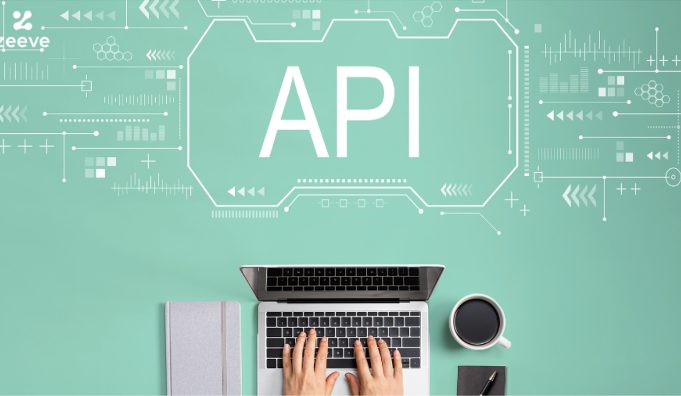Benefits of an API-driven approach for eCommerce
Latest update on 19 June, 2024 by Aaron Kwok– Marketing Analyst at FreightAmigo
The ecommerce landscape has undergone a remarkable transformation in recent years, driven by the rapid advancements in technology and the ever-evolving customer demands. As the industry navigates this dynamic landscape, a new approach has emerged that is poised to revolutionize the way businesses approach their digital commerce strategies – the API-driven approach.
Want To Compare The Best Express, Air Freight, Sea Freight, Rail Freight & Trucking Rates So As To Have Better Control On Cost?
Understanding API-Driven Commerce
At its core, API-driven commerce is a strategic approach that places the Application Programming Interface (API) at the forefront of the ecommerce ecosystem. Rather than treating the API as an afterthought, this methodology recognizes the API as a critical component that enables seamless integration, enhanced flexibility, and unparalleled scalability.
The Rise of API-First Development
In the past, ecommerce platforms often developed their applications first and then added APIs as an afterthought, leading to suboptimal integration and limited functionality. However, the API-first approach flips this paradigm, with the API serving as the foundation upon which the entire ecommerce ecosystem is built.
By prioritizing the API’s design and usability for external developers, businesses can create a more versatile and well-optimized interface that can be leveraged across multiple platforms and channels. This shift in mindset has paved the way for a more streamlined and efficient ecommerce development process.
The Benefits of API-Driven Commerce
The adoption of an API-driven approach to ecommerce offers a multitude of benefits that can transform the way businesses operate and deliver value to their customers. Let’s explore some of the key advantages:
Seamless Integration and Flexibility
APIs act as the connective tissue, seamlessly integrating disparate systems and enabling the seamless flow of data and functionality across the ecommerce ecosystem. This flexibility allows businesses to quickly adapt to changing market conditions and customer preferences, without the need for extensive system overhauls.
Enhanced Reusability and Productivity
By leveraging APIs, businesses can tap into pre-built functionalities and avoid the need to reinvent the wheel. This not only saves time and resources but also boosts developer productivity, as they can focus on core business logic rather than repetitive tasks.
Improved Customer Experience
APIs empower businesses to gain deeper insights into customer behavior and preferences, enabling them to tailor the shopping experience to individual needs. This personalized approach can lead to increased customer satisfaction, loyalty, and ultimately, higher conversion rates.
Scalability and Agility
The modular nature of API-driven commerce allows businesses to easily scale their operations and quickly adapt to changing market demands. As new technologies and customer requirements emerge, the API-driven architecture provides the necessary agility to incorporate these changes without disrupting the core system.
Reduced Maintenance Costs
By decoupling the front-end and back-end systems, API-driven commerce simplifies the maintenance and update process. This, in turn, can lead to significant cost savings and reduced IT overhead, allowing businesses to allocate resources more efficiently.
Real-World Examples of API-Driven Commerce Success
The benefits of API-driven commerce are not just theoretical; they are being realized by leading ecommerce players across various industries. Let’s explore some real-world success stories:
Eurail: Seamless Integration and Exceptional Customer Experience
Eurail, the leading provider of European train travel passes, recognized the importance of an API-first approach in supporting its digital business strategy. By leveraging the API-first architecture of commercetools, Eurail was able to build a digital ecosystem that seamlessly combined its ecommerce functionalities with engaging content management. This integration not only provided a smooth user experience but also offered the flexibility required to adapt to the evolving needs of its customers.
Zoro: Accelerating Time-to-Market with API-First Commerce
Facing the immediate challenge of losing access to customer information whenever their ERP went down, Zoro, an industrial supplies company, decided to build a next-generation, headless commerce solution in-house. Realizing the potential of combining microservices with an API-first foundation, Zoro was able to accelerate its time-to-market and deliver an enhanced ecommerce buying experience by partnering with commercetools.
Emma: Embracing Composable Commerce with API-First Approach
The D2C sleep brand, Emma, adopted a composable commerce strategy, leveraging the power of APIs to create a best-of-breed ecosystem. By integrating specialized solutions for different application areas, including order, content, and warehouse management, Emma was able to customize its commerce operations to cater to its unique needs. The exceptional flexibility and scalability of the API-first commerce platform empowered Emma to swiftly respond to changing market demands and stay ahead of the competition.
Conclusion
In the dynamic and customer-centric ecommerce landscape, the API-driven approach has emerged as a game-changer, offering businesses a powerful tool to streamline operations, enhance customer experiences, and drive sustainable growth. By prioritizing the API as the foundation of their ecommerce ecosystem, businesses can unlock a world of possibilities, from seamless integration and improved productivity to unparalleled scalability and adaptability.
As the ecommerce industry continues to evolve, the adoption of API-driven commerce will only accelerate, solidifying its position as a critical strategy for businesses seeking to thrive in the digital age. By embracing the transformative potential of APIs, ecommerce players can position themselves for long-term success, delivering exceptional customer experiences and staying ahead of the curve.
If you’re looking for a reliable partner to help navigate the complexities of international shipping, Please Go To The FreightAmigo Page For Inquiries
Read more:
How eCommerce Financing is Revolutionized by Technology | FreightAmigo
Exploring Last-Mile Delivery Solutions in eCommerce Logistics | FreightAmigo
APIs connection for ecommerce Businesses | FreightAmigo
If you have any inquiries on logistics / supply chain, feel free to contact FreightAmigo now:
Chat with us online | Hotline: +852 28121686 | WhatsApp: +852 27467829









































